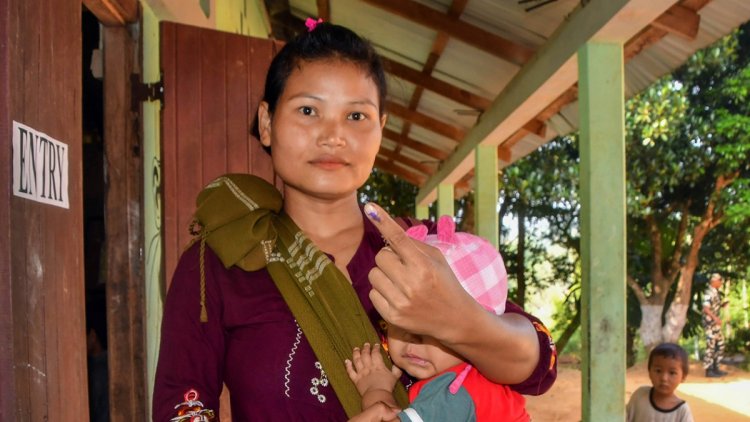Mizoram Assembly Elections: Issues in a Three Cornered Contest
Asia News Agency

The Assembly elections in the state will see three main contenders apart from the BJP — the incumbent Mizo National Front (MNF), the Congress and the Zoram People’s Movement (ZPM). This is unlike in the past when there were only two main parties. This time, the ZPM is another option for voters. The ZPM offers an alternative with more academics than any other party as candidates, not yet tarnished or tested by corruption.
The recent turn of events in Manipur, according to Joy L K Pachuau (professor of history at the Centre for Historical Studies, JNU, New Delhi) “have made the people wary of the BJP — something that was, perhaps, not the case earlier. Thus, the MNF, although it was part of the North-East Democratic Alliance, is busy trying to justify its earlier associations with the BJP….”
Issues that matter
Politics in Mizoram “has generally tended to be inward looking in the sense that national politics did not seem to have an impact on people’s political decisions. Internal issues of development or its lack — the perception of the pervasiveness of corruption, and whether a particular party was seen as contributing to the moral decline of people by reaping the windfall that the sale of alcohol could bring — were determining factors."
Regional ethnic politics: While the manifestoes this time, too as in the past, focus on development and offer many sops, Pachuau states “the parties are also aware of the regional ethnic politics and dynamics that guide people’s decision-making…..” For example, the recent refugee crisis brought about by the 2021 military coup in Myanmar as well as the conflict in Manipur “has forced people to engage more directly with new ethnic re-configurations….”
Influence of the church: The elections have also highlighted the religious temperament of the people, according to Pachuau. “With Mizoram being predominantly Christian, the church has been involved in elections to the extent of being the collective conscience of the people — by trying to influence them to vote for candidates of integrity, setting parameters for electioneering and sometimes by trying to set the agenda of the parties, especially in terms of supporting prohibition of alcohol….”
Question of ‘purity’ of ‘blood/race’: In the context of ethnic politics, Pachuau writes “this election has also brought about the question of ‘purity’ of ‘blood/race'. In the last assembly elections held in 2018, the “Bru question” — whether Brus who had settled in Tripura were to be kept away from the electoral rolls of Mizoram — was a key concern. This time, under the leadership of the Mizo Zirlai Pawl (MZP, a students’ union), the issue of whether women who are married to non-Mizos could stand for elections was brought out. Despite the relatively high participation of women in all kinds of activities in the state, politics has been an arena where women have largely been kept out of…”
















